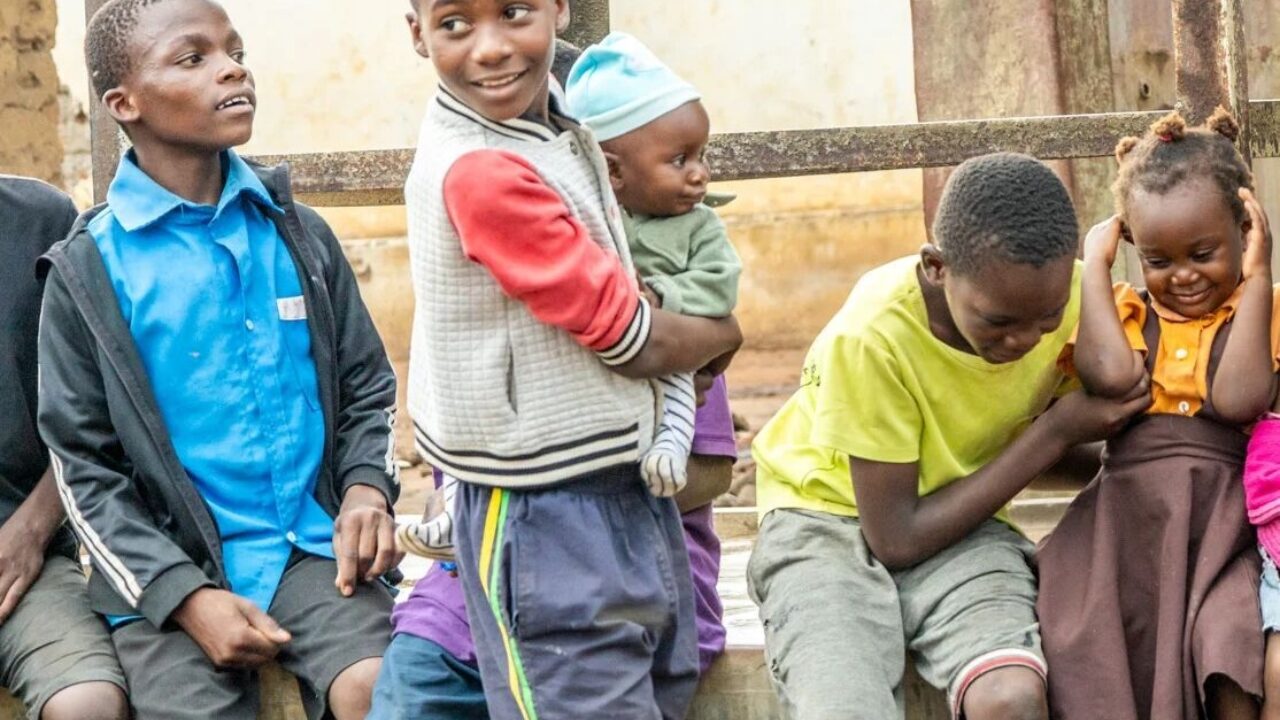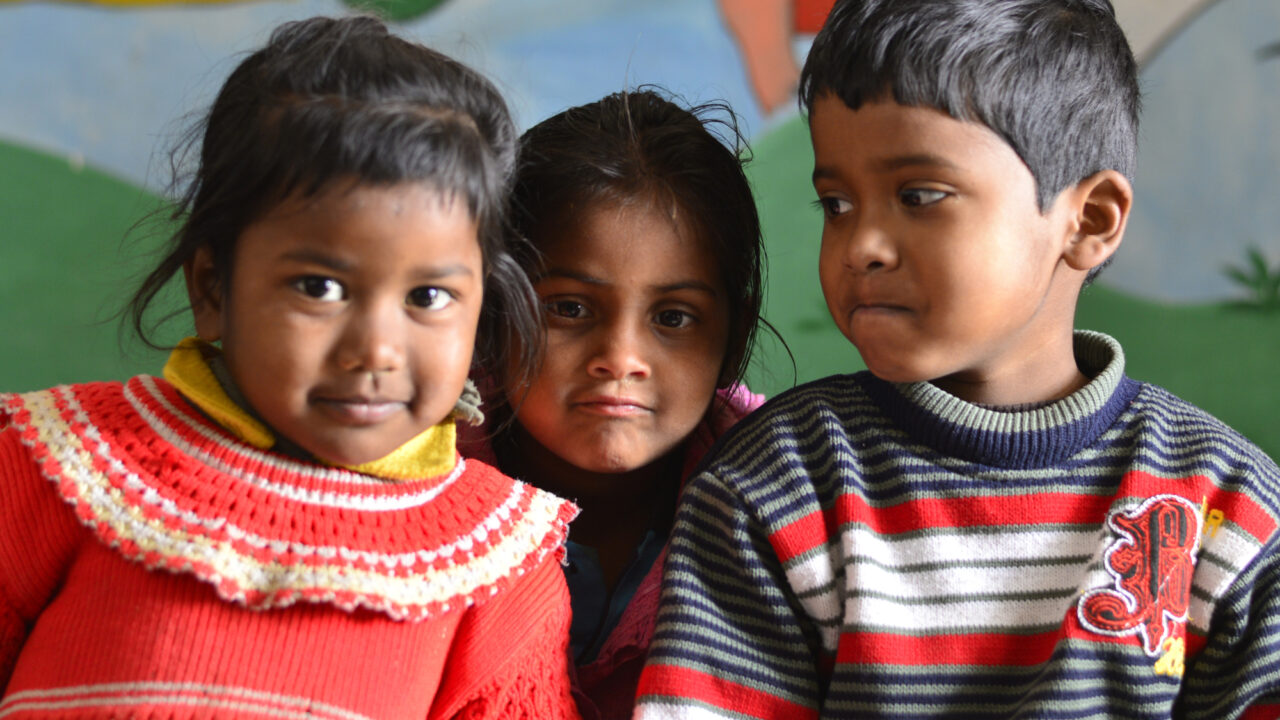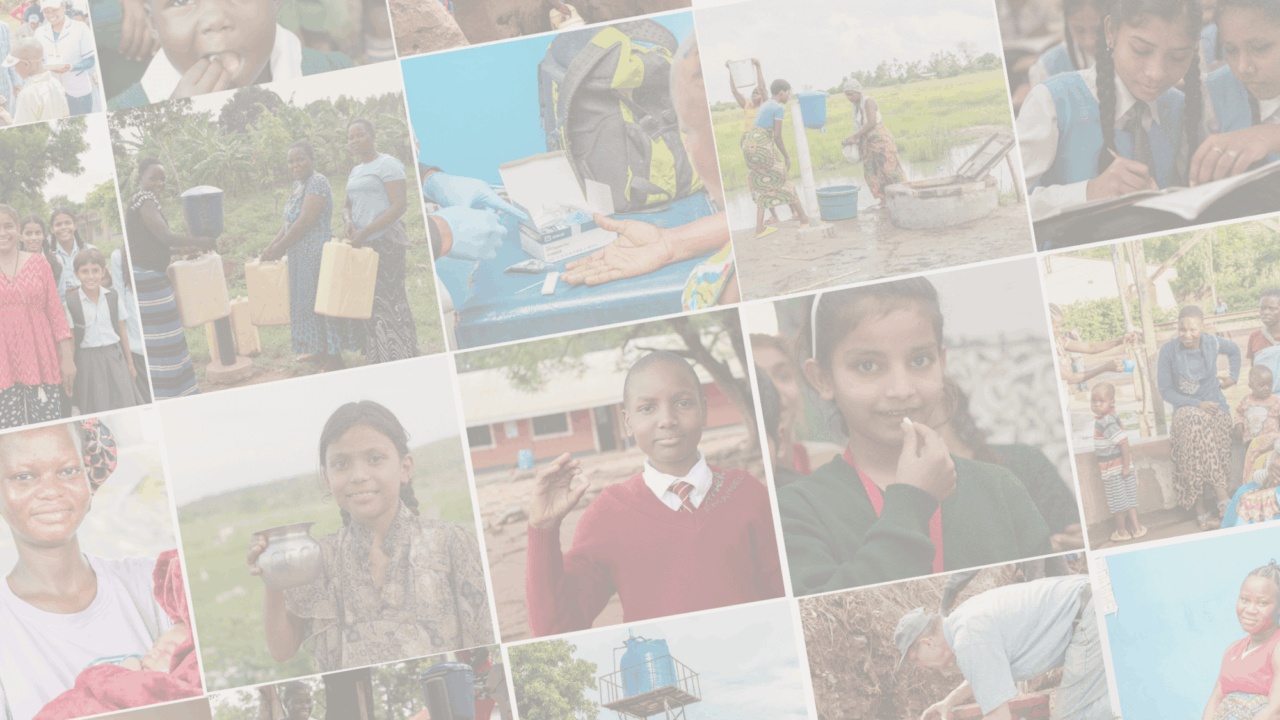For seven consecutive years, Evidence Action has supported the Kenyan government’s National School-Based Deworming program, which aims to improve health, nutrition, and education outcomes for children. Based on our support to this successful program, in 2016 the government sought similar assistance with another program focused on a different neglected tropical disease (NTD): lymphatic filariasis (LF).
Want To Dig Deeper?
Check out an in-depth case study we've put together for our email subscribers.
Like the diseases treated through school-based deworming, LF is also caused by parasitic worms, but is transmitted through mosquitoes and attacks an individual’s lymphatic system – with heartbreaking long-term consequences. As LF progresses it becomes painful and disfiguring, bringing physical, social, and psychological challenges for those infected, including stigma and incapacitation. Visible symptoms include swollen legs, arms, and genitalia and a hardened, thickened skin condition known as elephantiasis. Roughly 3.9 million people in Kenya are known to be at risk for LF. Since 2002, the Ministry of Health has provided mass drug administration (MDA) in endemic communities through its National Program for the Elimination of Lymphatic Filariasis (NPELF), but prior to 2015 the program struggled to achieve its objective of annual treatment for at least 65% of at-risk individuals. Thus, like most LF-endemic countries, Kenya was not on track to meet the World Health Organization (WHO) goal of eliminating the disease by 2020; as of 2018, the country still needed at least three more annual rounds of MDA to have a chance of achieving this milestone. In view of this, the Government of Kenya last year piloted a new, WHO-approved, and evidence-based approach to accelerating LF elimination – the first public-health-scaled pilot in Africa.
Piloting triple-drug therapy, or “IDA”
The new approach added a third drug, ivermectin, to the previous two-drug regimen of diethylcarbamazine citrate and albendazole (the triple-drug combination is known as “IDA” for short). Evidence shows that together, the three drugs more aggressively combat the LF parasite at all stages of its life cycle, and therefore, fewer treatment rounds are required. However, IDA is more challenging to implement since it requires reaching a greater proportion of at-risk people with treatment: while the two-drug approach is considered “effective” if it reaches 65% of targeted people, IDA must achieve at least 80% coverage to succeed.
Kenya’s pilot targeted over 278,000 people in one urban area and two rural settings (one island and one mainland). Several international partners supported the government’s effort, including Evidence Action, the NTD Support Center at the Task Force for Global Health, the END Fund, the Kenya Medical Research Institute (KEMRI), and the African Institute for Health and Development (AIHD). Because it was unprecedented in Kenya and would require multiple programmatic enhancements, all partners knew that achieving 80% coverage would be challenging. As a result, we spent significant time reflecting on how to apply lessons from smaller-scale IDA research pilots and past rounds of MDA in Kenya, to effectively mobilize targeted communities and ensure high participation in the MDA. Program results indicate that these efforts paid off, with the pilot reaching 87% of the targeted population. We share briefly about the strategies used to achieve this success below.
COMMUNITY SENSITIZATION
To treat at least 80% of the targeted population, it was critical to spread the word about the harmful effects of LF and the benefits of receiving treatment. As suggested by results from acceptability studies in varied geographies, local community leaders and health workers were essential in raising awareness and ensuring that everyone understood why the treatment approach had changed to include a new drug. Well before the MDA, they explained that some people would need to take up to 9 pills – quite a lot for any individual to consume at one time – because the dosage for one of the drugs is determined by height. During these interactions, community members could ask questions, raise concerns, and receive immediate feedback. They were also directed to a program hotline they could call if they had more questions later.
Tailored messaging for non-compliant groups
The Ministry of Health’s NTD Unit and partners also saw the need to tailor communication to groups that were prone to reject treatment in past years. Data from previous rounds of MDA, combined with community focus groups and input from local leaders, revealed that men and youth were more likely to turn down treatment because of misperceptions about LF or its treatment. For example, some believed that LF only affected elderly or poor people, or that the drugs caused infertility. To counteract misinformation, AIHD and Evidence Action worked with a media specialist to create short videos that addressed the specific concerns of men and youth. These videos and other messages were shared through WhatsApp groups created for individuals who would be distributing the drugs, who then forwarded the content to their contacts within targeted communities.
Leveraging trusted messengers to deliver information
Beyond refining the messages and platforms for communication, it was also important to ensure that the messengers delivering program information were credible and trusted. This was a vital consideration when recruiting drug distributors who would administer treatment and be community members’ primary contact with the pilot. Candidates that were well-known and well-regarded community members, and those who had some health-related training or background, were prioritized for selection.
Respected politicians and Muslim and Christian faith leaders were also key messengers. During the IDA launch event in Lamu county, the governor of Lamu spoke in support of the program, along with the County Commissioner and a Member of the County Assembly. With a large crowd gathered in the town square, these leaders swallowed the tablets as a public example for others, to increase communities’ confidence in the IDA treatment. Several people affected by LF also spoke at the event, discussing their personal battle with the disease, their initial reservations about treatment, and why they felt their neighbors should participate in the MDA.
DRUG DELIVERY & ADMINISTRATION
Delivering treatment: meeting communities where they are
As in previous rounds of MDA, drugs were delivered at well-known gathering places like markets or town squares, and through door-to-door house visits. Schools were not in session during the MDA, so children were treated along with the rest of their families. However, during the IDA pilot, extra effort was made to ensure the treatment was available and convenient for everyone. For instance, drug distributors went directly to several factories in Mombasa’s industrial areas – an innovative way of reaching a large demographic who may not be at home when the drug distributor makes her visit. In the Lamu archipelago, officials hired more boats than in previous years to get drugs to the most difficult-to-access islands. Drugs were also distributed on the ferries that many employees use to commute to and from work.
Heightened supervision of drug administration
In previous years, each community drug distributor was expected to treat 500 households over about five days of MDA. To improve the distributors’ reach during the IDA pilot, the period was extended to six days; more distributors were recruited and their targets reduced from 500 to 300 households. This allowed them to spend more time with each household answering questions, ensuring accurate dosing, and visually confirming that drugs were swallowed (enabling higher confidence in reported coverage). By recruiting additional Community Health Extension Workers to oversee the MDA, the drug distributors were more closely supervised, allowing NTD Unit leaders to address challenges more quickly.
Applying Kenya’s successes to future rounds and additional countries
Data collected during real-time process monitoring as well as post-MDA coverage validation exercises confirmed Kenya’s success in surpassing the 80% treatment coverage target, and strong performance in areas such as training attendance and supply chain management, with over 90% of drug distributors receiving all drugs and materials before the MDA start date. Having established stronger community sensitization, communication, and supervision systems through adjustments made during the IDA pilot, Kenya’s NPELF is set for continued operational success in future rounds, regardless of the treatment regimen being implemented.
Today, only 14 of 73 endemic countries have successfully eliminated LF as a public health problem. For the many countries still working toward this milestone, Kenya’s experiences piloting IDA offer many lessons and a potential model for implementing triple-drug therapy. We are continuing to work with the Kenyan government team and its partners to ensure these lessons are disseminated and can contribute to lessening the global burden of LF.



